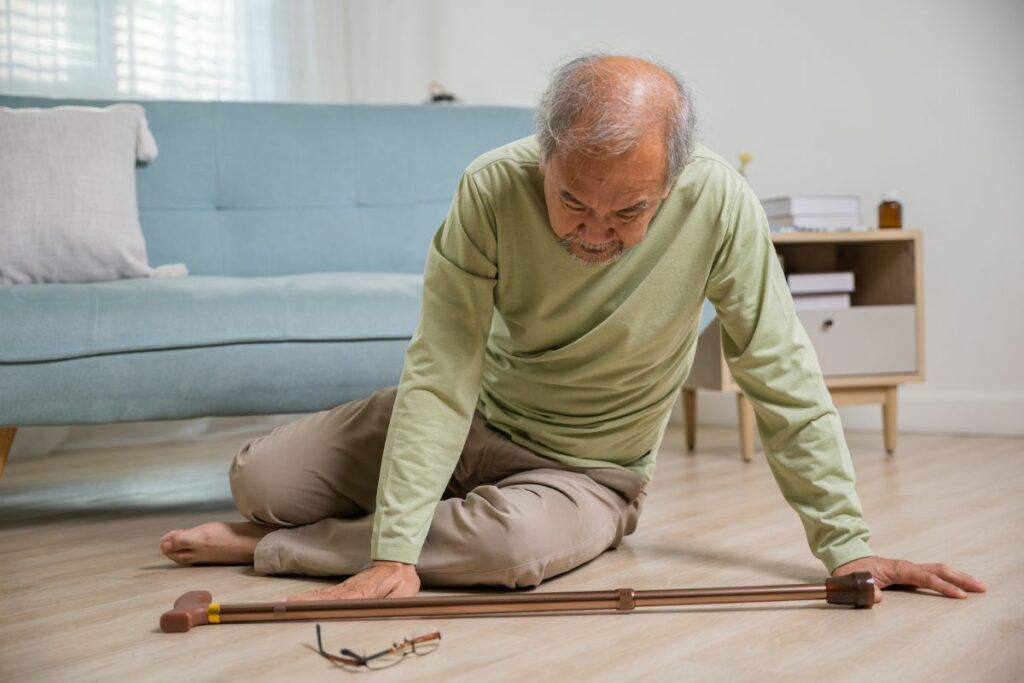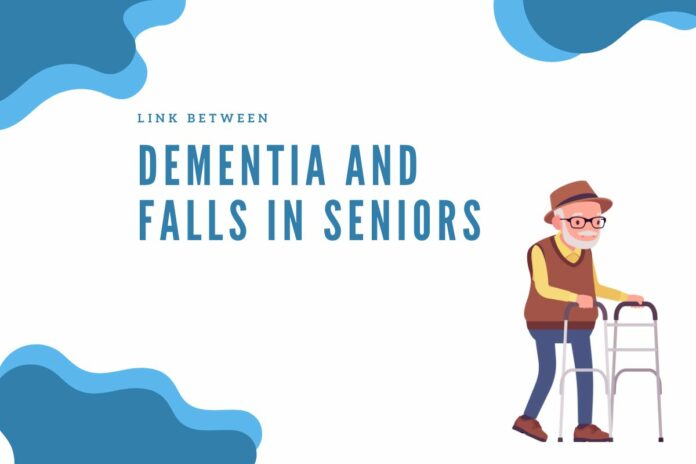The Link Between Dementia and Falls in Seniors
Do you know that nearly 30% of seniors experience at least one fall yearly? What if a single stumble could impact more than just your balance? The connection between dementia and falls is gaining attention, with studies explaining how even minor injuries can accelerate cognitive decline.
In fact, studies suggest that head trauma from a fall can hasten the progression of dementia-related symptoms by up to 50%. So, can a simple fall mean more than meets the eye? Let’s discuss the hidden risks.
Link Between Dementia and Falls

It’s no secret that falls are common among seniors. In 2020 alone, over 36 million falls were reported among 65-year-old adults or older. However, the concern extends beyond broken bones or bruises.
Emerging evidence suggests that a fall can have significant repercussions on brain health, especially for seniors at risk of or already diagnosed with dementia. This connection stems from several factors, like traumatic brain injuries, vascular issues, and the psychological impact of falls.
According to the Alzheimer’s Association, older adults who suffer a traumatic injury from a fall are 21% more likely to be diagnosed with Alzheimer’s disease or another form of dementia later in life.
Can a Fall Accelerate Dementia?
The answer backed by research is YES! Traumatic brain injury, even from a seemingly minor fall, can cause microscopic damage to brain tissue. This damage can disrupt neural pathways, worsening memory, reasoning, and problem-solving abilities in seniors already diagnosed with dementia.
Furthermore, the psychological impact of an injury should not be underestimated. A fall can lead to fear, anxiety, and reduced physical activity. This decline in mental stimulation and mobility solidifies the connection between dementia and falls.
Moreover, falls can trigger inflammatory responses and stress, which negatively impact brain health, further linking dementia and falls.
A study published in JAMA Neurology found that older adults who experienced a hip fracture faced a significantly elevated likelihood of developing dementia compared to those who did not experience such an injury.
Why Seniors Are Vulnerable to Falls
For the elderly with dementia, the risk of falls is significantly heightened due to a combination of factors:
Cognitive Impairment
Dementia affects memory, judgment, and decision-making. Seniors may misjudge distances or forget to use assistive devices, leading to accidents.
Balance and Coordination Issues
Aging affects the vestibular system, making it harder to maintain balance.
Vision Problems
Reduced depth perception and visual-spatial impairments, common in dementia, can cause trips and stumbles.
Medications
Many dementia patients take medications like memantine, donepezil, or rivastigmine, which can cause dizziness or drowsiness, increasing fall risk.
Preventing Falls to Protect Brain Health
Below are some practical tips to reduce the likelihood of a fall and its potential impact on the brain.
Conduct Home Safety Assessments
Given the strong connection between dementia and falls, it is crucial to ensure living spaces are free from trapping hazards. Simple modifications like installing grab bars, improving lighting, and removing loose rugs or clutter can significantly lower the risk of falls.
Encourage Physical Activity
Regular exercise improves balance, coordination, and muscle strength, which are crucial in preventing falls. Activities like yoga, tai chi, or walking can help the elderly stay active and reduce the risk of dementia and falls.
Walkers, canes, and other mobility aids should be used consistently to prevent trips and stumbles.
Routine Vision and Hearing Checks
Poor vision and hearing loss are major contributors to falls, as seniors are more likely to misjudge distances or miss auditory cues. Regular checkups and corrective measures like glasses or hearing aids can help seniors navigate their environment more safely.
Monitor Medication Side Effects.
Review medications regularly to ensure they don’t cause dizziness or drowsiness, especially for seniors with cognitive impairments.
Cognitive Training and Mental Stimulation
While physical injuries can exacerbate cognitive decline, maintaining an active brain can help counteract this effect. Encourage activities like puzzles, reading, or learning new skills to boost cognitive resilience.
Caregivers and Families
For caregivers, managing the aftermath of a fall is critical. The goal is not only to ensure physical recovery but also to address the emotional and cognitive impact.
Conclusion
While a fall may seem like a minor setback, it can have far-reaching implications for brain health. The connection between dementia and falls is a sobering reminder of the importance of preventive care. By staying informed and proactive, we can help seniors maintain their independence, mobility, and cognitive health for as long as possible.


















